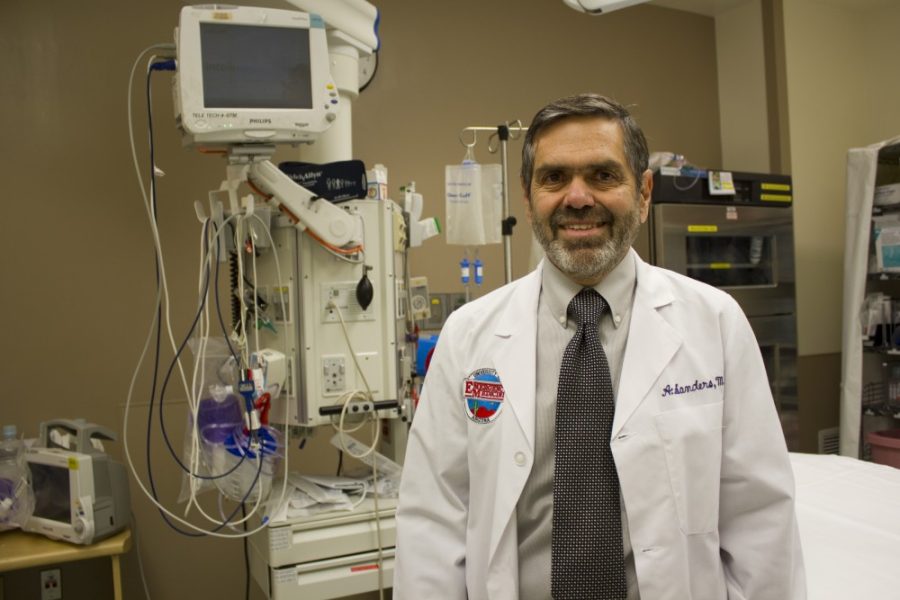A UA faculty member in the department of emergency medicine is one of 80 people worldwide to be elected into the Institute of Medicine of the National Academies.
Arthur Sanders, a professor of emergency medicine, was elected into the institute that is considered to be one of the highest honors in the health and medicine field.
This year, the institute recognized 70 new members who have demonstrated professional achievement and commitment to service amongst their peers, said Christine Stencel, the institute’s media relations officer. Ten foreign associates were also elected this year.
“It’s an honorific society with the election and the recognition of the individual for their outstanding achievement,” Stencel said. “We are very pleased to have a faculty member from Arizona amongst this year’s elected professionals.”
New members are elected by current active members.
“It’s a great honor to be elected,” Sanders said. “I spent my whole academic years here … I feel very grateful to everyone at the University of Arizona who has supported me.”
Sanders joined the UA faculty in 1977 after graduating from Cornell Medical School in 1973 and completing his residency in internal medicine at the UA.
As a faculty member, Sanders said he was interested in doing research in cardiopulmonary recitation. After doing research for 20 years with Gordon Ewy, a professor of medicine and director of the UA Sarver Heart Center, they were able to triple the survival rate of patients who suffered cardiac arrest.
They also developed Chest-Compression-Only CPR, a method that does not include mouth-to-mouth breathing.
“I couldn’t think of a nicer person to happen to and of course they don’t award this to just nice people, they award this to people who have made major contributions in science, and I couldn’t be happier for him,” Ewy said. “He is an important part of our team. It’s an honor and not many people get elected and we could not be happier or prouder.”
Another interest of Sanders has been geriatric emergency, the care of older patients in the emergency center. He helped develop a model of care for elderly patients to address their needs.
In addition to research and patient care, Sanders mentors six students throughout their medical careers.
“I really enjoy it, it gives you the opportunity to make a difference in individuals, in patient care and students,” he said.
Now that he has been elected into the institute, Sanders said he hopes to get involved in the task forces in the committee that produce papers on areas in his expertise. The advantages that the recognition gives Sanders include potentially allowing him to have more of an influence and a voice in certain policies on a national level, he said.
“In a lot of ways,” he added, “I have been blessed and fortunate to be in a new growing medical center and a new growing profession.”









